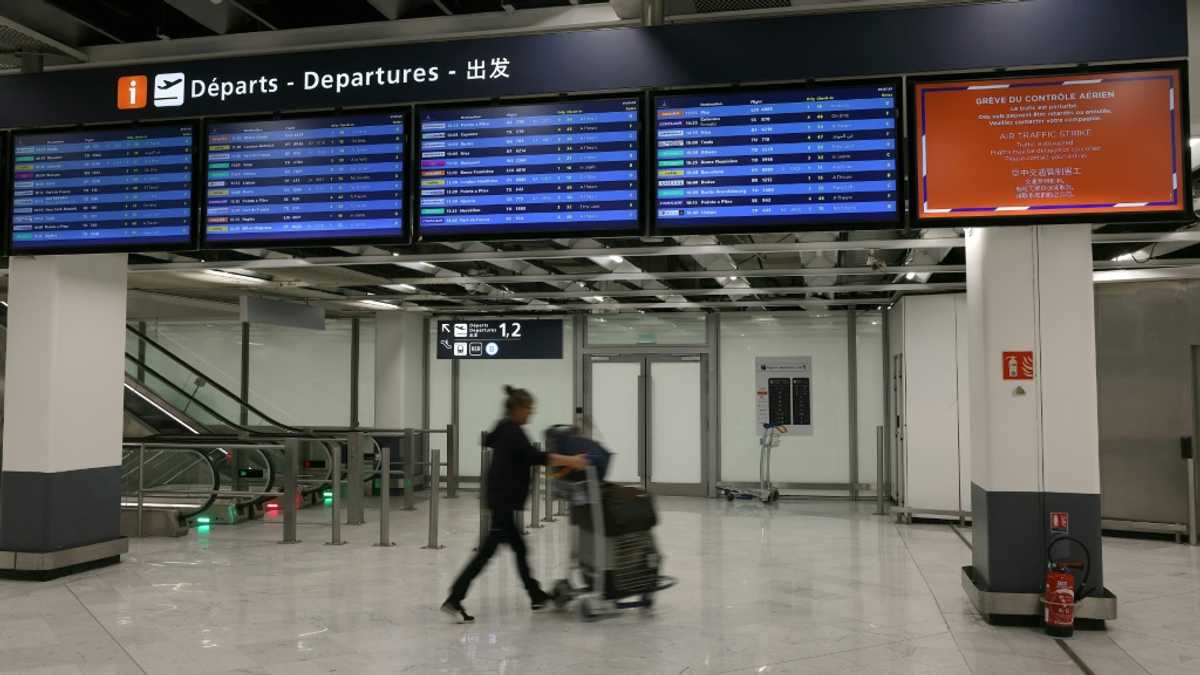Disruption of Air Travel in Western Europe Due to French Air Traffic Controllers’ Strike
A two-day strike by French air traffic controllers has caused significant disruptions across Western Europe, affecting tens of thousands of travelers during the peak of the summer holiday season. The action, which began on Thursday, has led to flight cancellations and delays, prompting authorities to urge airlines to reduce their schedules.
Support kami, ada hadiah spesial untuk anda.
Klik di sini: https://indonesiacrowd.com/support-bonus/
The Directorate General for Civil Aviation (DGAC) has requested that airlines cancel some flights to ensure there are enough air traffic controllers available to manage operations. This move aims to mitigate the impact of the strike and maintain a level of safety and efficiency in the airspace.
Ryanair, the largest airline in Europe, reported that it had to cancel 170 flights, impacting approximately 30,000 passengers. The airline’s CEO, Michael O’Leary, criticized the strike, stating that “European families are once again being held hostage by French air traffic controllers.” The Airlines for Europe association, which represents major carriers including Ryanair, Air France-KLM, Lufthansa, British Airways, and EasyJet, described the strike as “intolerable.”
According to sources, around 270 out of approximately 1,400 air traffic controllers participated in the strike. The action was initiated by UNSA-ICNA, the second-largest labor union in the sector, and supported by USAC-CGT, the third-largest union. These groups are demanding improved working conditions and an increase in staff numbers.
Support us — there's a special gift for you.
Click here: https://indonesiacrowd.com/support-bonus/
By mid-morning on Thursday, flight delays were widespread, with arrivals at Nice Airport facing an average delay of 1.5 hours and departures experiencing an average delay of one hour. In Paris, a quarter of flights departing from or arriving at Charles de Gaulle and Orly airports were canceled. The southern regions of France were particularly affected, with 30% of flights canceled in cities such as Lyon, Marseille, and Montpellier.
As the school holidays begin on Friday, the situation is expected to worsen at Paris airports and Beauvais. The DGAC has ordered a 40% reduction in flight numbers at these locations to manage the growing congestion.
Eurocontrol, the European air traffic management organization, warned airlines of “significant” delays in the airspace controlled by air traffic control centers in Marseille, Brest, and Reims. Business aviation, especially in areas like Nice and Le Bourget near Paris, has also been heavily impacted.
France’s transport minister, Philippe Tabarot, expressed strong disapproval of the unions’ demands, calling them unacceptable. He criticized the timing of the strike, stating that it is inappropriate to hold such actions at the start of the holiday season. His comments reflect the broader frustration among officials and travelers alike, who are struggling to navigate the chaos caused by the strike.
The ongoing dispute highlights the challenges faced by the aviation sector in balancing the needs of workers with the expectations of passengers. As the strike continues, the focus remains on finding a resolution that ensures both safety and service reliability for all travelers.







